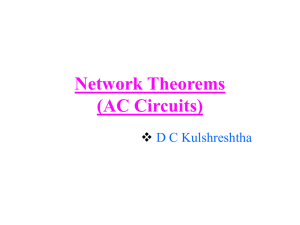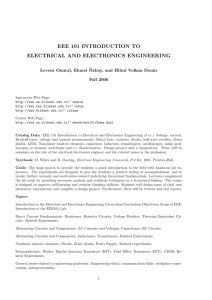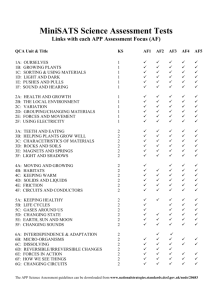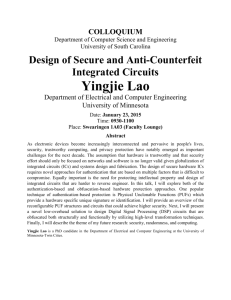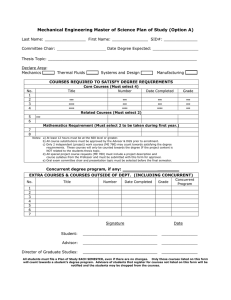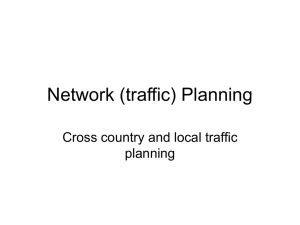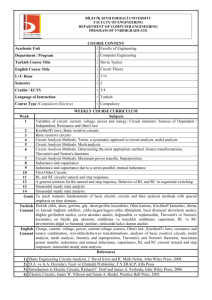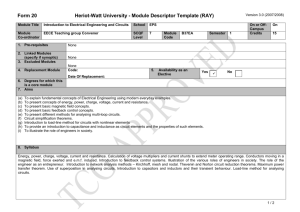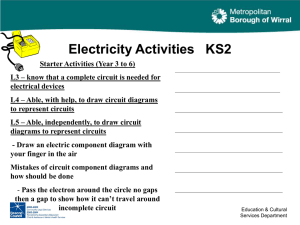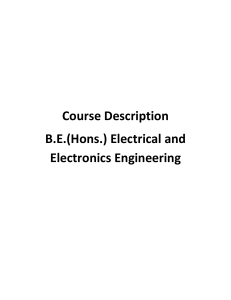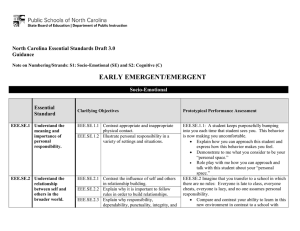Department of Electrical and Computer Engineering
advertisement
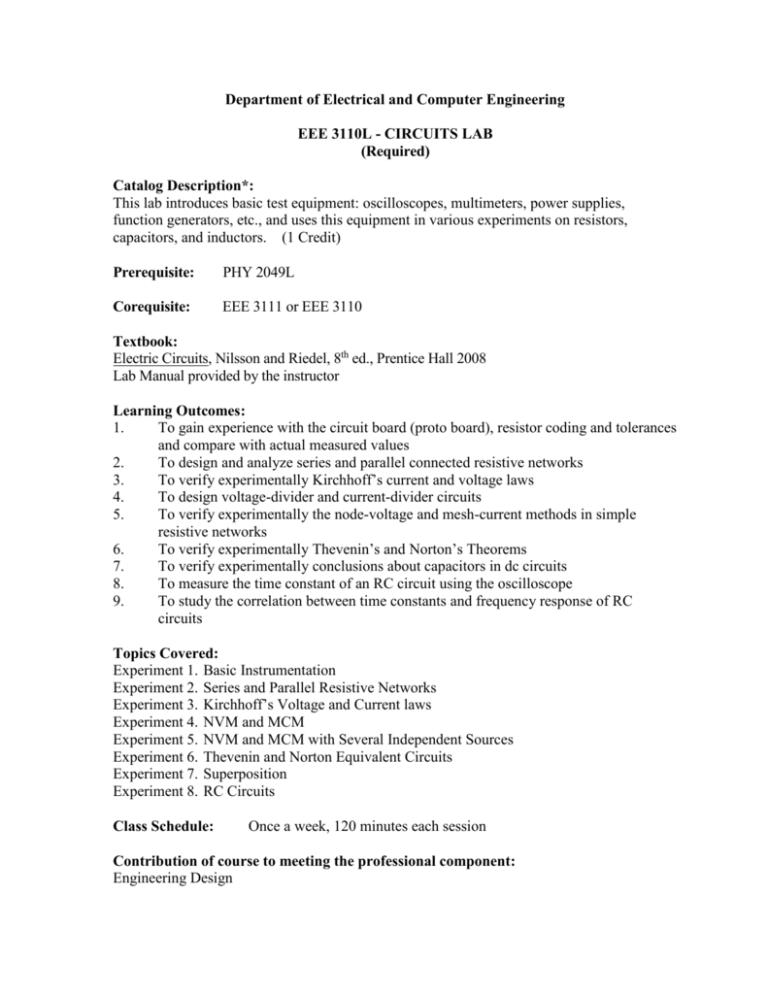
Department of Electrical and Computer Engineering EEE 3110L - CIRCUITS LAB (Required) Catalog Description*: This lab introduces basic test equipment: oscilloscopes, multimeters, power supplies, function generators, etc., and uses this equipment in various experiments on resistors, capacitors, and inductors. (1 Credit) Prerequisite: PHY 2049L Corequisite: EEE 3111 or EEE 3110 Textbook: Electric Circuits, Nilsson and Riedel, 8th ed., Prentice Hall 2008 Lab Manual provided by the instructor Learning Outcomes: 1. To gain experience with the circuit board (proto board), resistor coding and tolerances and compare with actual measured values 2. To design and analyze series and parallel connected resistive networks 3. To verify experimentally Kirchhoff’s current and voltage laws 4. To design voltage-divider and current-divider circuits 5. To verify experimentally the node-voltage and mesh-current methods in simple resistive networks 6. To verify experimentally Thevenin’s and Norton’s Theorems 7. To verify experimentally conclusions about capacitors in dc circuits 8. To measure the time constant of an RC circuit using the oscilloscope 9. To study the correlation between time constants and frequency response of RC circuits Topics Covered: Experiment 1. Basic Instrumentation Experiment 2. Series and Parallel Resistive Networks Experiment 3. Kirchhoff’s Voltage and Current laws Experiment 4. NVM and MCM Experiment 5. NVM and MCM with Several Independent Sources Experiment 6. Thevenin and Norton Equivalent Circuits Experiment 7. Superposition Experiment 8. RC Circuits Class Schedule: Once a week, 120 minutes each session Contribution of course to meeting the professional component: Engineering Design Relationship of course to program outcomes: In the course EEE 3111L with EEE 3110 or EEE 3111 the student will have to show (a) an ability to apply knowledge of mathematics, science and engineering (b) an ability to design and conduct experiments, as well as to analyze and interpret data (g) an ability to communicate effectively (k) an ability to use the techniques, skills, and modern engineering tools necessary for engineering practice (m) an ability to apply knowledge of advanced math (D.E., Linear Algebra, Complex Variables, Discrete Math) Person(s) who prepared this description and date of preparation: Pierre E. Schmidt, Professor – May 14, 2007, Modified October 13, 2010
